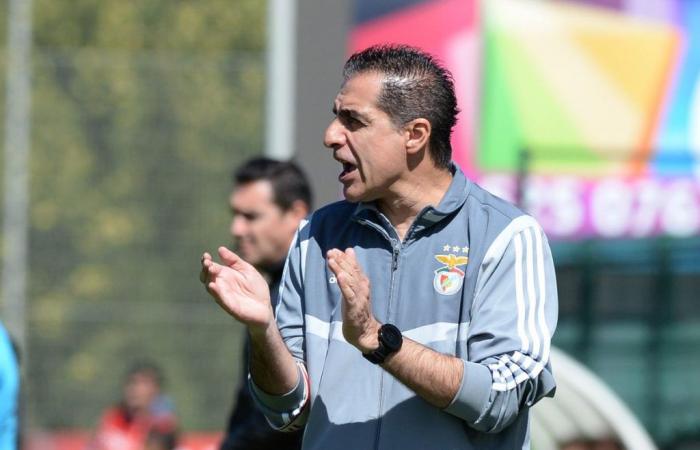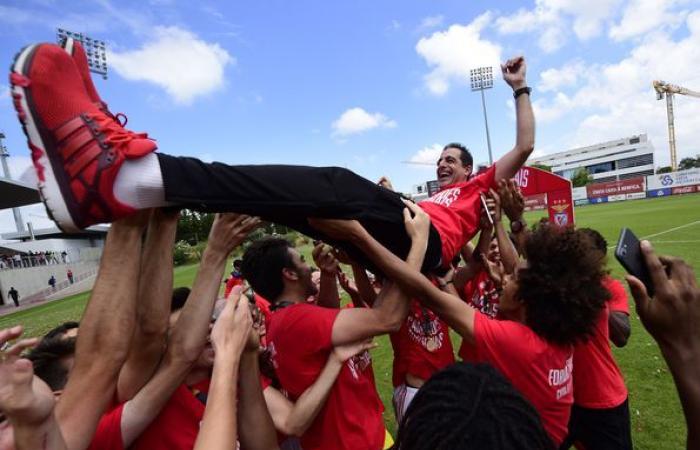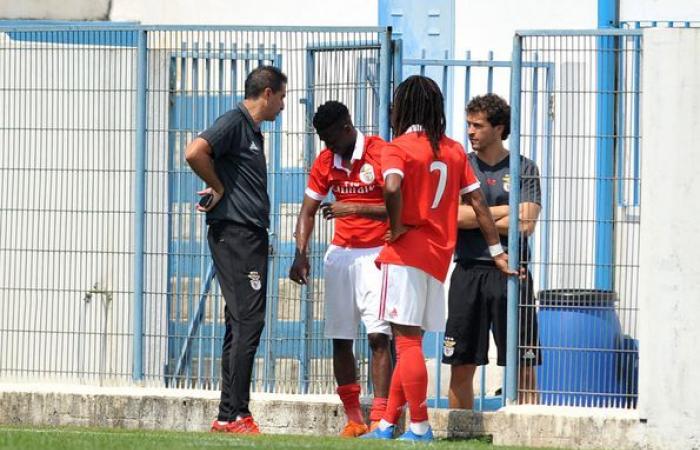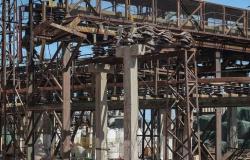Paulo Bernardo and Tomás Araújo were two of the former players he coached in the Reds who remained under close observation, however, a possible approach extended to Daniel Bragança and Romário Baró; Guga and Chiquinho were close to being reinforcements at León, but their departure from the Mexican club caused the deal to collapse
– After Independiente del Valle, Club Léon and Bahia, is Toluca the project where you feel you are best prepared?
– Obviously I always felt prepared for the steps I took, otherwise I wouldn’t take them. I was always very aware. When I left Benfica, I wasn’t prepared to coach Real Madrid, Barcelona, Liverpool or Chelsea. I felt prepared to coach Independiente, then I felt prepared to coach Léon, then Bahia and today I feel prepared to coach Toluca. I’m very conscious. I spent 18 years in the formation of Benfica, patiently. I was in the under-17s for six years, for example, I was never in a rush to leave, I waited for my time and I want to take very well-supported steps. I feel very well prepared to coach a club of Toluca’s size and demands, which plays to win titles and has a huge crowd behind it, which is the third biggest club in terms of titles in Mexico and the results are visible.
– On this journey outside Portugal tried to bring some of your pupils for any of your teams?
– Already tried. I tried to bring some players from Benfica, Sporting and FC Porto. Why? Because I really value the work that is done in Portugal, it is no longer just the big three, as SC Braga and V. Guimarães already have people working very well in training. I think that a well-trained player will give me less work, depending on the reality I encounter in South and Central America, when, for example, I have to explain to 30-year-old central players what profiles and the supports to control the depth of my defensive line or not to do one-on-one with parallel supports. This happens to experienced defenders here, as a result of deficiencies in their training. As I was saying, I’ve already tried, so this or that hasn’t been possible yet, but I won’t stop trying. There are a few young people that I have my eye on, especially in the big three, that depending on their use – after Clausura, we want to sign them – let’s see if it’s possible for me to get one of these boys from Portugal.
– Couldn’t you tell us a specific name?
– I had my eyes on Paulo Bernardo, for example. But at the time it wasn’t possible and he didn’t want to leave. I kept my eyes on Tomás Araújo, at that time when Benfica did not intend to release him. I also had my eyes on Romário Baró, but at the time FC Porto didn’t want to release him. So I walked there to fall in love Daniel Bragança, without him knowing and Sporting knowing. Studying it to see if it was possible and suddenly – good for Daniel – he gave a back flips in his career and began to be used. At the time, and without me realizing it, my career was almost at a standstill, that’s the truth. Another name was Guga. He was already at Rio Ave and there were conversations there, during León’s time, that were public, and with Chiquinho, who is at Olympiacos, too. If I don’t leave León, today they were players here in Mexico. If I haven’t been out… things were heading towards closure. On my birthday, André Horta called me – because my relationship with André and Ricardo is almost family – and he said he had someone to talk to me and it was Chiquinho. They were both there, in Greece, to congratulate me. All this to remember the case of Guga, who, by the way, is a player that I greatly admire.
– Looking at the current moment, we can find several players who, both nationally and internationally, have been very prominent in their clubs and have had their mark or have passed through them. When you see them playing does it make you proud or do you feel an added responsibility for things to go well for them?
– The greatest merit is theirs. No one follows anyone else’s path, but it’s not their merit in wanting to hear from those who helped them and that’s the best part of them all. Humble, wanting to work, wanting to learn from different coaches, as Renato Paiva has a little bit there, as do Felipe Coelho, Luís Araújo and several others who went through his training. Obviously, since I worked with them, at a certain point in their career, their growth makes me and all the people who worked with me proud, because there is not just the coach, there is a technical team, a management structure Benfica’s youth football, which was extremely important in this growth. A coach alone, without that structure behind him, would have a lot of difficulties, so there are a hundred people who have to feel proud of their contribution, whether more or less visible. When I sit on the sofa and see them playing at the highest level, winning Champions Leagues, winning championships and seeing them in the national teams, being able to say that I contributed a little something to that makes me very satisfied. It also makes me happy that my phone is full of messages from them. If we win, if we lose, if it’s my birthday, if it’s the end of the year, Christmas – even some more than others, it’s true -, this thing about not losing track means that I marked them a lot and they marked me a lot. You have been a training coach for 18 years and you think it was worth it, all that work makes sense when you look at these results. In 2012, the national youth champions were Benfica under-17 and I know because I was the coach, but if you go to a Benfica, FC Porto or Sporting fan, no one remembers. However, if you say that Bernardo Silva was trained at Benfica, Rúben Dias was trained at Benfica, Cristiano Ronaldo was trained at Sporting, that is what remains of grassroots football. The titles are very good, they give you medals, a CV, it’s true, but after a few years no one cares. As I’ve always said: the title in Benfica’s formation happens whenever a player wears the first team’s shirt, starts to join the National Team and, from then on, has an extraordinary career, whether at Benfica or across borders.
-And in the opposite sense, when a player does not achieve the result expected of him, he tries to understand why or if there is any responsibility on his part for this event?
– We always have. We can’t just be parents of pretty boys, there are also ugly boys and we were their parents too. It’s not because they’re ugly that we stop being parents. A coach always has a way that didn’t reach the player. Then there is the part about the player who didn’t want to listen to the coach. There is always a set of situations. I had several cases. There is one that I always say is André Carvalhas, the most talented player I coached and who had a very limited career, or even Miguel Rosa, who did not reach a very high level in Portuguese football, when they had many conditions to do so. In this matter, the best known of them all is Fábio Paim, who was a terror to play against. That’s why I say that those who got far because of coach A, B or C is not true. The Rúbens, the Bernardos, the Cancelos, the Renatos, the Iuris Ribeiros, the Gugas, the Tiagos Gouveia, the Hortas, so on, it is their merit, because they knew how to listen, fight, resist some sweet things in life, which a player can’t have and that they, as young people, sometimes don’t have the willpower to counter it. I’ve always found it frustrating for a player to deal with several coaches and when it comes to my hands, why can’t it? It’s always a frustration for me. Either because I couldn’t get there, or because he doesn’t like me, there was no chemistry, something happened. I keep these in my head at the same level of analysis as Bernardo, Félix, Renato Sanches or Rúben Dias, because those who didn’t achieve what was expected challenge me to improve. Then, the sensitivity of dealing with a young person helps you with your own training, being aware of your own steps, in other words, when you reach professional football you cannot treat them in the same way as an under-15 player. When you go through this path, you are training players, but you are also training yourself as a coach. Please note, this is not the rule because many coaches have been champions and have had extraordinary careers without training their youth. Jorge Jesus is an example of this and there are others, but I reaffirm that he is an extraordinary asset, and this does not mean if you are a youth coach that you will become a good senior or professional football coach.
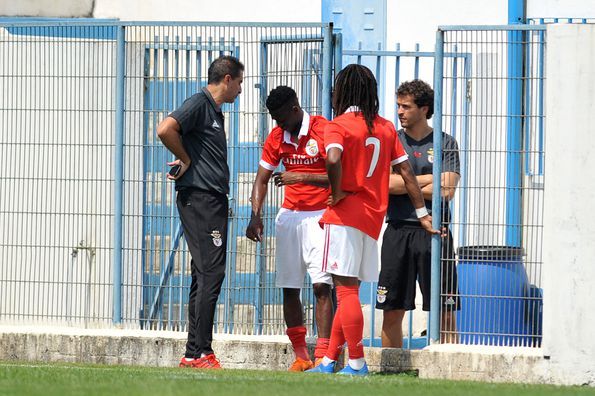
Tags: INTERVIEW BOLA Renato Paiva reveals longstanding interest signing Benfica players
--
